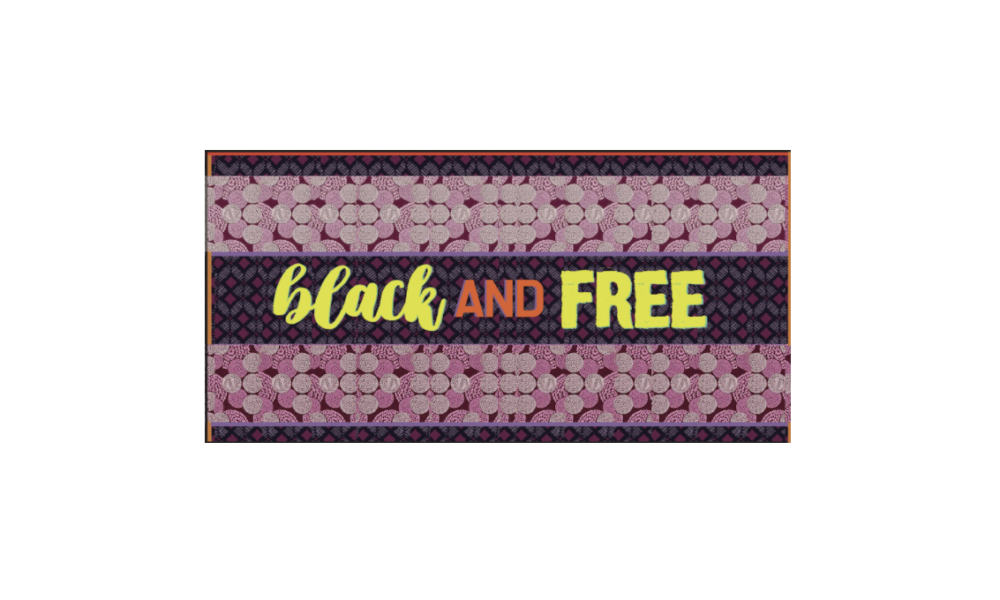In what ways can Black theatre advance Black liberation in the 21st century? No doubt a loaded question, and one that the virtual event “Black and Free: Theatre & Conversation’” explored with nuance and care. Co-hosted by McGill’s Department of English and York University’s Department of Theatre, the night began with an acapella performance by Naila Keleta-Mae, an associate professor at the University of Waterloo with expertise in race, gender and theatre performance. Repeating the evocative refrain, “Black and Free. Black and Free. Black and Free,” Keleta-Mae’s simple but concise performance was a powerful reminder of the event’s purpose: To centre the fight for Black liberation in theatre.
Equal parts performance and conversation, the event opened with a stage reading of an excerpt from No Knowledge College. Written and scored by Keleta-Mae, the play follows four Black women pursuing their graduate degrees who come to face a striking revelation on the eve of their thesis defences. Play readings over Zoom come with inherent challenges, such as communicating character relationships, engaging audience members, and navigating technical difficulties. Still, the creative team worked the medium to their advantage; one performer manipulated laptop camera angles and lighting for added spectacle, while another played both the student and her condescending teacher in the same scene. Altogether, performers Uche Ama, isi-bhakomen, Kamana Ntibarikure, and Chelsea Russell portrayed the fictional students of No Knowledge College with humour and depth, imbuing their characters with sincerity as they navigated tokenism, affirmative action, and Black identity.
Quincy Armorer, the artistic director of the Black Theatre Workshop; Rawle Gibbons, a Caribbean theatre artist and educator; and Djanet Sears, an award-winning playwright joined Keleta-Mae for a Q&A session after the reading. Unexpectedly, all but one of the discussion questions that followed did not reference the topic of Blackness.
“This is intentional,” Keleta-Mae said during the panel, expressing that Black theatre artists tend to only receive questions related to race, whereas their non-Black counterparts are asked other questions, such as insights into their artistic process. Instead, Keleta-Mae asked open-ended questions, allowing the night’s panellists to define the relationship between their Blackness and their art on their own terms.
“My hypothesis is that the nuances of Blackness and Black life will inevitably be embedded in our guests’ answers,” Keleta-Mae said.
Given the passionate discussions that followed, it’s safe to say that Keleta-Mae’s hypothesis was correct—the influence of Black identity on the artists’ responses to broad questions like “why do you make theatre?” and “who is it for?” was distinctly present. The panellists emphasized, in particular, the importance of authentic representation.
“I wanted to see more Black stories in the theatre,” Djanet Sears said in response to a question about why she makes theatre. “Because there were not a lot, I began to write. I write in order to add my voice to a chorus of Black voices speaking about their various experiences and adding it to the Canadian arena of theatre.”
Citing his own efforts to make art that represents parts of the Black diaspora, Trinidad and Tobago-born artist Rawle Gibbons’ response to “who is it for?” proved a simple yet powerful statement: “For me, it’s for the Caribbean people.”
Together, the panellists of “Black and Free” discussed their personal performance-making processes and artistic visions, interspersed with reflections on their experiences as Black theatre artists in Canada. Looking ahead, they expressed optimism toward the future of Black theatre, provided that concrete efforts are made to dismantle deeply rooted systemic racism in the industry.
Keleta-Mae ended the night by leading audience members in a reprise of the opening refrain. Though Zoom left much of the audio crackly and disjointed, watching audience members turn on their cameras to sing “Black and Free” was the perfect encapsulation of an earlier comment by Djanet Sears: “Theatre creates community best.”









